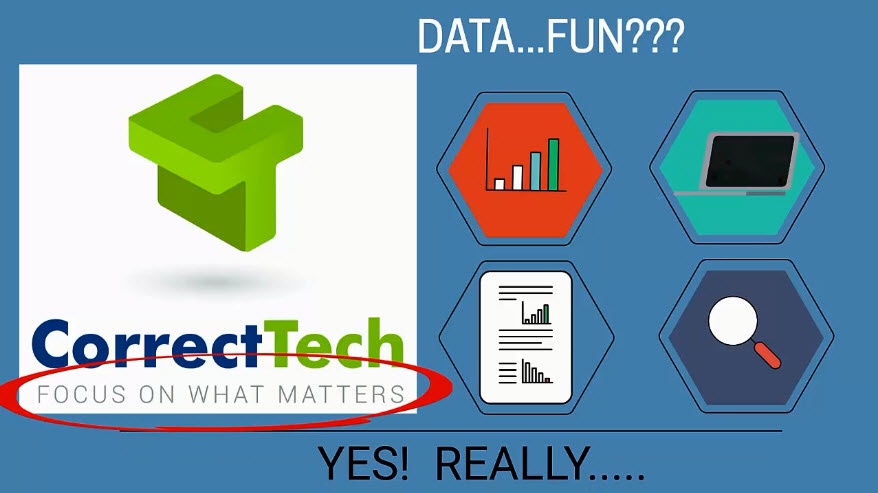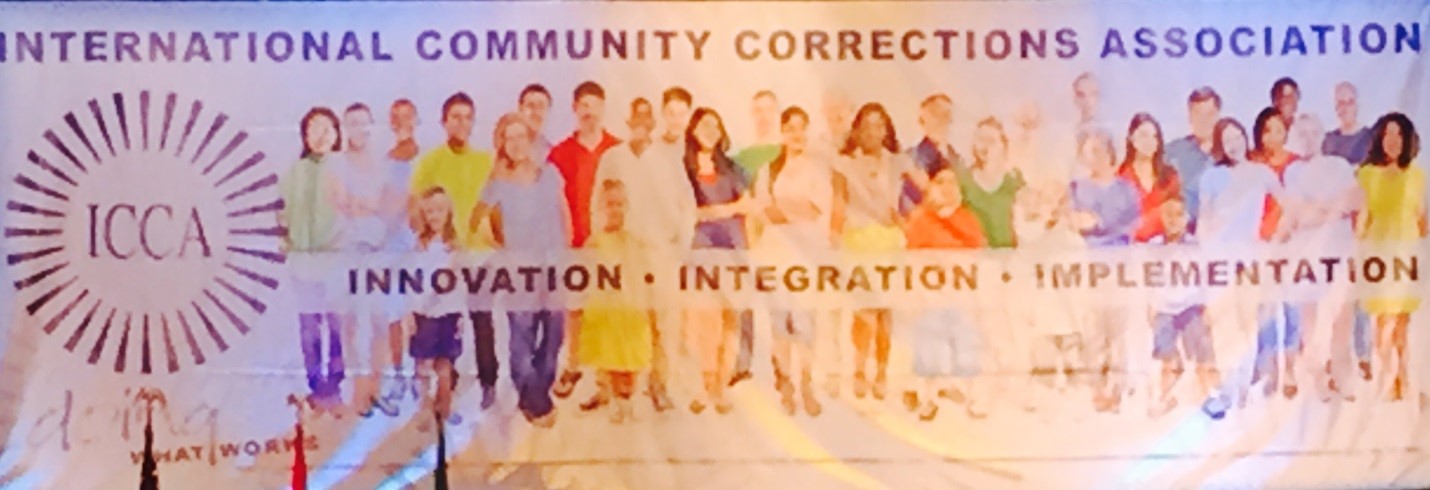What a powerful statement made by Dr. Ed Latessa while speaking about what works and doesn’t work in reducing recidivism at the OCCA conference in May of 2018. Of course, you need referees in a game and metaphorically when running a community corrections program. We must play by and enforce the rules, but coaches win games and make their players successful. Community corrections does need staff that “blow the whistle” when clients go out of bounds, give appropriate consequences and redirection, but that alone only keeps people in bounds during the game, it doesn’t teach them how to improve their skills and improve long term. In my experience, Dr. Latessa is dead on. Staff naturally gravitate towards being the rule enforcer rather than the encourager. Getting staff to take on coach as their primary role is something that can’t just be trained, it must be immersed in the daily culture of the program.
Read MoreRecent Posts
We Need More Coaches and Less Referees
Posted by Lisa Sayler on 6/13/19 10:01 PM
Topics: Community Corrections, Positive Reinforcement, reaching clients emotions, client needs and values
What IS Community Corrections?
Posted by Lisa Sayler on 5/9/19 11:41 PM
When you hear the words Community Corrections what is the first thing you think of?
As a Community Corrections veteran of a residential program in Colorado, when someone asks me what community corrections is…my first response is, you may have heard it called a “halfway house”. And very egocentrically, I assumed that’s what it meant for everyone who said, “community corrections”. While I worked alongside probation and parole previously, when I started to work for CorrectTech I learned much more about what community corrections first means to others in the field and some minor differences and similarities in all the different shapes, sizes, and flavors of community corrections. I found it very interesting…maybe you will too.
Read MoreTopics: Community Corrections, Community Corrections Professional
The T's and C's : No Longer the ABC's in Community Corrections
Posted by Lisa Sayler on 4/26/18 12:21 PM
Community Corrections is Changing...Are You?
Change is hard. We expect our clients to change but when faced with change ourselves, we can often resist. We expect someone who has lived a certain way for 20, 30, 40+ years to make abrupt changes but when we give up sweets and our colleague brings donuts in, we gobble them down and vow that was the last time. We get a speeding ticket and vow to not speed anymore but once the initial sting has worn off, we look down and notice we are going 40 in a 30 and didn’t even realize it. It’s so much easier for people to change when it’s not us. It takes a lot of practice, new habits and even failure, to change. Sure, there is a valid difference, if an offender doesn’t change criminal behavior, there are serious consequences to their freedom, not just to their waistline or pocket book. But if those consequences were all it took; community corrections might not exist.
Community Corrections is changing. The change has been in the works ever since the early “what works” and “EBP” research pointed us to new approaches. What is different now is the change is hitting closer to home to the daily routines, decision making and programming. We know this through our conversations with practitioners all around the country and many in some of the most progressive states in community corrections, who are looking for support in meeting new and existing requirements from oversight agencies. While many in the field are excited about the changes, others are left feeling anxious, frustrated and resistant to change. Just like many of our clients feel upon entering a program. While it is easier not to change our own practices, we must continue to try new approaches and work to improve long term results. It doesn’t mean we don’t hold our clients accountable, it means we expand and adapt our approach and learn we have other tools in our toolbelt. People, even community correction professionals, must be held accountable to change in ways that move towards improved results.
Read MoreTopics: Community Corrections, Evidence Based Practices, Motivational Interviewing, Community Corrections Professional, Change, what works, responsivity, impact sessions, intrinsic motivation, client development
Fun with Data...Really??? (With Video!)
Posted by Lisa Sayler on 2/7/18 7:58 AM
Fun with Data Management…. Really?
How many of you community corrections practitioners dread pulling together month end, quarter end or worse…year end program results?
So, you are wondering why I would include “fun” in the same sentence as data management. What’s more surprising is it’s me who is having fun with data management. I am not a big data person. Research, spreadsheets, data analysis, not my cup of tea. Include me in on a problem solving, “what works” or implementation discussion and I’ll let someone else do all the research.
However, you’d be surprised how much better data can be when you don’t have to do any data entry to view basic and complex data analysis for your community corrections program operations.
Check out an example of just one way we make data fun in our newest data management video “Fun with Data Management - Monitor History”.
Topics: Community Corrections, Evidence Based Practices, Community Corrections Professional, Technology, Software, ICCA, Monitor History, Data Management, Program Data, program results
The Opposite of Addiction is not Sobriety. It is Connection
Posted by Lisa Sayler on 11/17/17 8:34 AM
What we learned about the Opioid Crisis at the 2017 ICCA Conference in Seattle
The Opposite of Addiction is not Sobriety. This may have been the most powerful statement we heard at the ICCA conference where researchers and practitioners of many fields and backgrounds came together to learn, share information and knowledge; pushing each other to keep learning and doing more in our pursuit to do what works best. Community Corrections has never been short of challenges and barriers. It is encouraging to see dedicated professionals working hard to break through.
The conference encompassed workshops surrounding some of these challenges, including the opioid crisis, relapse prevention, housing and employment, and our jails being filled with a large amount of people with significant mental illness and trauma. While there were many outstanding workshops at the Seattle conference, in this blog we will talk about discussions and community corrections solutions with relationship to the opioid crisis.
The Opioid Crisis
Who are some of the people who have been impacted directly by this crisis?
Read MoreTopics: Community Corrections, Evidence Based Practices, Community Engagement, Community Corrections Professional, Conferences, ICCA, Opioid Crisis, Addiction, Opioid Addiction, Community Connection, Relapse Prevention, ICCA Seattle
Subscribe To Our Blog
Recent Posts
Posts by Topic
- Community Corrections (61)
- Evidence Based Practices (44)
- Community Corrections Professional (23)
- Software (15)
- Practices (12)
- Change (11)
- Technology (10)
- Risk Principle (8)
- reentry (8)
- probation staff (7)
- EBP (6)
- Outcomes (6)
- client development (6)
- client needs and values (6)
- coaching community corrections clients (6)
- Assessment (5)
- Community (5)
- Developing a practice model (5)
- Justice-Involved Clients (5)
- Remote work (5)
- The Coaching Habit (5)
- parole (5)
- risk (5)
- tele-supervision (5)
- tele-work (5)
- Community Engagement (4)
- Evan C. Crist (4)
- Community Corrections Client Services (3)
- Criminal Justice Reform (3)
- Implementation (3)
- Listening Skills (3)
- Motivational Interviewing (3)
- Policy (3)
- Positive Reinforcement (3)
- Practice Models (3)
- high risk client (3)
- reaching clients emotions (3)
- responsivity (3)
- Addiction (2)
- BOP (2)
- Conferences (2)
- ICCA (2)
- Management (2)
- Michael Bungay Stanier (2)
- Relapse Prevention (2)
- halfway house (2)
- jic (2)
- principles (2)
- procedures (2)
- program results (2)
- APPA (1)
- Appreciative Thinking (1)
- Brian Lovins (1)
- COVID-10 (1)
- Community Connection (1)
- Coronavirus (1)
- Crisis (1)
- Customer Service (1)
- Data Management (1)
- Fidelity (1)
- ICCA Seattle (1)
- Juvenile Corrections (1)
- Leadership (1)
- Monitor History (1)
- Opioid Addiction (1)
- Opioid Crisis (1)
- Orange is the New Black (1)
- Program Data (1)
- Reforms (1)
- Relapse (1)
- Second Chances (1)
- Switch by the Heath Brothers (1)
- Treatment (1)
- drug testing (1)
- going paperless (1)
- govcio outlook (1)
- impact sessions (1)
- innovation (1)
- intrinsic motivation (1)
- justice reinvestment (1)
- marijuana testing (1)
- money savings (1)
- opiod testing (1)
- paperless office (1)
- purpose (1)
- remote working (1)
- resources (1)
- sanction (1)
- staff productivity (1)
- technology solutions provider (1)
- the awe question (1)
- what works (1)
- what's on your heart (1)
- work from home (1)







